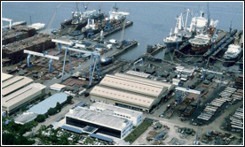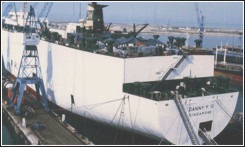Company’s core business is in the coal production and distribution domestically and overseas, having coal mine projects located in Indonesia as its base for coal production and distribution activities. In addition, the Company has ocean freight transport service business in Singapore to effectively support and manage coal transport for distribution in the Country or delivery to other countries.
Coal Characteristics
Coal is a fossil fuel, consisting of volatile matter, inherent moisture and an important combustible mixture of carbon. After combustion with the volatile matter and inherent moisture driven out, small portion of coal ash remains. Coal is found in various forms or grades based on the contents of heating or calorific value, volatile matter, and fixed carbon, representing in descending order of quality in 4 groups from (1) anthracite, (2) bituminous, (3) sub-bituminous, and (4) lignite. The indigenous coal deposits in that have been explored and extensively developed for local industries in Thailand are generally of lignite grade. Imported coal is mostly of bituminous grade which contains higher calorific value than lignite coal produced in Thailand.
The price of coal is usually determined based on the quality of coal, consisting of calorific value, moisture, volatile matter, fixed carbon, ash, sulfur and size.
Coal Production
Coal is formed in several stages from plant remains that have been compacted, hardened, chemically altered, and metamorphosed by heat and pressure over millions of years. Therefore, to develop a coal mine, coal exploration works are required for the collection and interpretation of geological data in order to learn about the thickness of coal seams, boundary areas of the coal resource, chemical content and quality, and economic reserve estimation. The development of coal deposits is generally based on the information and data obtained from these exploration programs. Accordingly, the production of coal consists of following three major steps:
(1) Coal Exploration: The exploration program begins with the preliminary collection and analysis of the land surface and geological data at the target areas. Subsequently, fieldwork includes scout drilling to study the formation and type of soil and rock, and geological structure of the target areas to ascertain that there exists the coal deposit with further assessment of coal quality and reserve estimation for economic analysis to facilitate a decision for further development of the coal mine.
(2) Coal Mining: Before proceeding with coal mining operation, more detail drilling activities are required to collect and interpret necessary information and data of the mining areas, such as, coal reserves and quality for each of the coal seam formations including soil layers. The collected data and information will be used to determine the mine master plan which includes the analysis of mining costs and mining methods, as well as the quantity and areas for overburden removal and coal winning logistics, and selection of suitable mining equipment and machinery.
(3) Coal Dressing: To attain the quality as required by the users or customers, coal extracted from the coal mining operation need to go through coal dressing process which includes crushing, sizing, sorting, and washing to remove any contaminations, etc.
Coal Pricing Policy
Coal pricing is mainly determined by its heating value, similar to other types of fuels. The coal sale price for each customer varies depending on certain factors such as order volume, coal specifications such as calorific value, credit term and other conditions specified by the customer. These factors shall be used to determine the coal price fairly and similarly with all the customers. The price for imported coal is based on the agreement with each customer which can either be priced on FOB or CIF basis, or priced as delivered to the customer’s factory, etc.
Coal Distribution
For coal distribution in the domestic market, the Company directly sells coal directly to customers without going through agent. As for the overseas market, coal is sold directly to the customers or through coal trading agents, mostly on the credit term basis, of which the Company carefully provides credit terms only for the longtime customers with stable financial status. For new customers, the Company protects the risk by having a letter of credit (L/C) opened by the customer. Since the start of operation in 1985, the Company has encountered very few bad debts from the sales of coal.
Competitive Strategy
The Company focuses mainly on the service and quality control of the coal products as its marketing strategy rather than relying on pricing strategy. In addition, the Company has continually developed ways to produce high quality coal by bringing in modern technology for continuing improvement of coal production and operation.
Competition
The domestic coal distribution business has been recognized as an oligopoly market with only a few numbers of operators, having a group of large and small industrial customers with the major competitor is Banpu Public Co., Ltd. Nevertheless, since the Company has its own high-quality coal mines with several years of mineable reserves, therefore possesses sufficient competitive advantage and business potential.
Industrial Trend
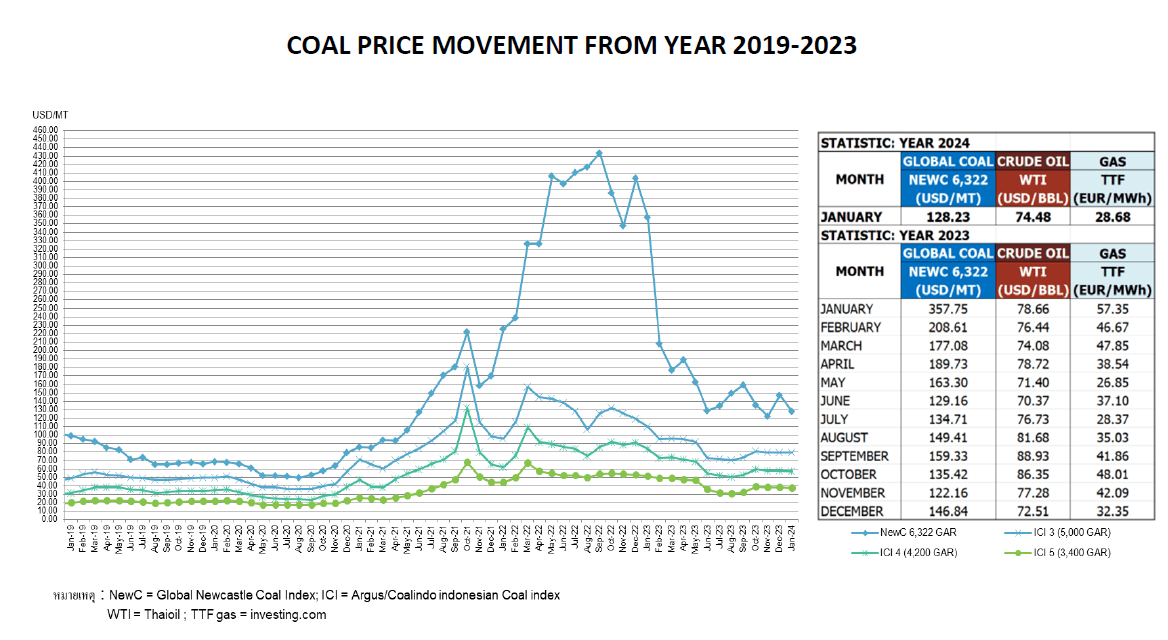
Due to the ongoing tension between Russia and Ukraine since mid-2022, the overall coal market situation has been affected with the Newcastle coal price index (NEWC) having reached its peak at USD 434.02 per metric ton in September 2022. However, the market subsequently experienced a sustained downturn throughout 2022 and well into 2023, with prices falling to USD 357.75 per metric ton in January 2023 and dropping further to USD 129.15 per metric ton in June 2023. The remaining 2023, coal prices were fluctuating between the range of USD 160 to USD 120 per metric ton until the end of 2023.
In terms of the market outlook for 2024, it remains a crucial period of rebalancing. While the market has alleviated its concerns on the Russia-Ukraine situation, it has raised its level of caution towards potential tensions in other regions, such as in the Middle East, caused by the conflicts involving Israel and Palestine, or in the case where major powers having issued retaliatory measures against each other driven by political policies, the establishment of power centers, responses to economic, trade, and investment measures, including addressing economic recession in many countries, particularly major economies such as the United States of America, China, European countries, and Japan, etc., which will have significant impact on the demand and supply across various sectors in the global market.
Regarding the collaboration to mitigate climate change and global warming, at the recent 2023 UN Climate Change Conference (COP28) held at the end of 2023, several countries have requested flexibility for adjustments of the timeframe for greenhouse gas (GHG) reduction and temperature for global warming targets by extending the previous targets in order to minimize the impact on investments in alternative energy resources, thereby maintaining the cost of production for goods and services, as well as implementing fair and equitable energy transition for all, while considering the diverse economic and technological readiness levels among different countries.
According to the International Energy Agency (“IEA”) analysis on global coal consumption, it is anticipated that over the next decade, overall energy usage will continue to rise. Coal is projected to remain the primary fuel for electricity generation due to its high demand, despite limited coal supply or production, as the development of new coal mines faces challenges with fewer coal resources available. Additionally, there is a decline in the calorific value of coal, and accessing coal resources has become more challenging due to longer transportation distances and difficulties in securing investment capital, consequently leading to increased production costs, which has put pressure on price levels to remain high.
As for the coal production and distribution business in Indonesia, the Company remains focused on supplying coal with calorific value of 3800 KCal/Kg (GAR) and 4600 KCal/kg (GAR). The emphasis is on exporting to the market in India, known for its high economic growth potential with the ongoing market expansion that is supported by minimal volatility and a stable political environment with well-established and developed economic policies.
COAL BUSINESS ACTIVITIES
Domestic Coal Business
The Company imports coal from the joint venture coal mining projects and from other sources in Indonesia for distribution in Thailand by either direct delivery and for inventory and processing before delivery to the customers at Ayutthaya Coal Distribution Center, located in Nakhon Luang District, Phra Nakhon Si Ayutthaya Province on an area of 31 rai and 56.40 square wah, which can support over 200,000 metric tons of coal inventory. The Company’s domestic coal market share in 2023 was approximately 7 percent of the amount of coal used in the industrial sector, excluding coal used for electricity production of independent power producers (IPP) and small power producer (SPP). The majority of domestic coal consumption in 2023 was mainly by cement industry at approximately 35 percent with the remaining 65 percent by electricity production and other industries, which excludes electricity production from the Electricity Generating Authority of Thailand (“EGAT”). It is expected that the consumption of coal, with a lower cost per heat unit than other types of fuel, will continue to increase in the future.

Overseas Coal Business
For more than 22 years, the Company has invested in joint venture coal mining projects in Indonesia, of which coal is imported for distribution to the domestic customers and exported to other countries especially in the Asia region market, such as India, Japan, South Korea, Taiwan, Hong Kong, etc. Coal produced by the Company is of good quality with reputable brand and trusted by both domestic and overseas customers. The Company is one of the highly regarded and reliable coal companies in the Asia region.
PT. Lanna Harita Indonesia (“LHI”), a subsidiary company registered in Indonesia, with Lanna Resources Public Co., Ltd. directly holds shares at 55 percent of the paid-up capital, conducts coal mining business operation in Samarinda district, Kutai Regency, East Kalimantan, having received the coal mining concession (Coal Contract of Work) from the Indonesian Government for coal production and distribution for a period of 30 years (from 2001 to 2031). The remaining coal reserves are estimated at 17 million metric tons. Currently, the production capacity is approximately 3.5 million metric tons per year.
PT. Singlurus Pratama (“SGP”)a subsidiary company registered in Indonesia, with Lanna Resources Public Co., Ltd. directly holds shares at 65 percent of the paid-up capital, conducts coal mining business operation in Kutai Regency, East Kalimantan, having received the coal mining concession (Coal Contract of Work) from the Indonesian Government for coal production and distribution for a period of 30 years (from 2009 to 2039). The remaining coal reserves are estimated at not less than 35 million metric tons, with production capacity in 2023 of approximately 5 million metric tons. At present, SGP is in the process of developing a new coal deposit within SGP concession area, namely, Margomulyo Block (“MG”). Coal production and distribution from MG commenced in the 2nd quarter 2024 of approximately 0.5 million metric tons, before increasing to 1-1.5 million metric tons in the following years. The coal produced from MG will be transported via the port and jetty of the Argosari Block (“AG”), which is currently in operation. SGP has increased its production capacity by having constructed a second coal processing plant and renovating the coal stockyard areas to increase coal stockpile capacity to 200,000 metric tons, and currently renovating the port and jetty, as well as adding another 1.70-km long conveyor belt extending from the port to the jetty in the sea in order to accommodate the coal production and distribution from the AG and MG coal deposits as mentioned above, with plan to produce and distribute coal of approximately 3 million and 1.5 million metric tons per year, respectively, totaling 4.5 million metric tons per year. The coal produced is of good quality with relatively high calorific value and low Sulphur content, making it easily marketable and profitable.
PT. Pesona Khatulistiwa Nusantara (“PKN”)a subsidiary company registered in Indonesia, with Lanna Resources Public Co., Ltd. directly holds shares at 10 percent of the total number of shares, conducts coal mining business operation in Bulungan Regency, North Kalimantan, having received the coal mining concession (Coal Contract of Work) from the Indonesian Government for coal production and distribution for a period of 30 years (from 2009 to 2039). The remaining coal reserves are estimated at not less than 25 million metric tons with production capacity in 2023 of approximately 5.8 million metric tons per year, and PKN plans to increase production capacity to 6.0 million metric tons in year 2024.
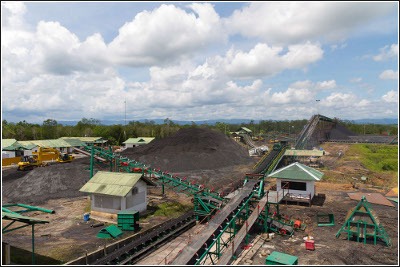
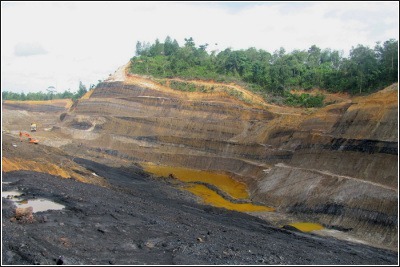
United Bulk Shipping Pte. Ltd. (“UBS”), an associated company registered in Singapore, with Lanna Resources Public Co., Ltd. directly holds shares at 49 percent of the paid-up capital, has been established to undertake business in ocean freight transport and coal trading, which has effectively managed coal transport services for imported coal into Thailand and coal distribution to other countries at reasonable costs.
